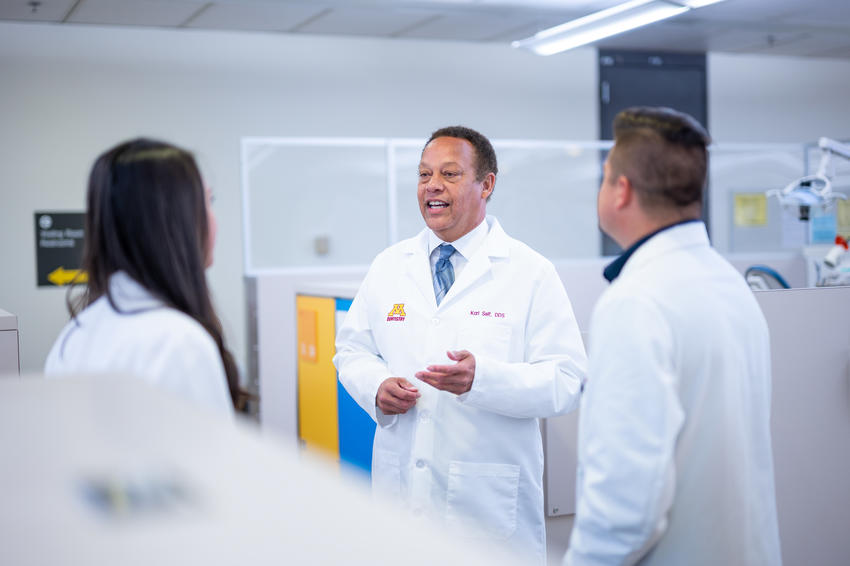Self discusses access to care and dental therapy with MPR

Karl Self, DDS, MBA, director of the Division of Dental Therapy and Interim Associate Dean for Academic Affairs, shared his expertise on access to dental care, dental therapy and dental fear in a recent interview.
Self joined MPR News with Angela Davis on Wednesday, August 17 to discuss oral health care, access to dentistry and the way we perceive our mouths. He was accompanied by Mary Otto, health journalist and the author of Teeth: The Story of Beauty, Inequality and the Struggle of Oral Health in America, Prasida Khanal, BDS, MPH, oral health director for the Minnesota Department of Health, and Amber Cziok, DDS ’06, president of the Minnesota Dental Association.
Throughout the hour, Angela Davis spoke with these experts and took calls from listeners who shared their stories of dental care. Callers shared their experiences navigating insurance, traumatic experiences, fear and long wait times for care.
Self explained that, though Minnesota performs better than other states in terms of access, finding comprehensive dental care is a problem nation-wide. He cited studies showing that while 71% of children with dental insurance would have a preventive oral health care visit, only around 43% of children on government programs or without private insurance would.
In fact, Self explained that “unmet healthcare needs” are considered a disease that requires treatment, and one that occurs most frequently in the field of dentistry.
“It’s a huge challenge, and we need to do a better job of getting care to the people who need it.”
One way of ensuring that care, Self explained, is the implementation of dental therapists who can work as part of the dental team and assist with access to care in rural, low-income and underinsured areas.
Self also stressed the importance of preventative care. “Dental issues will never get better on their own,” he said. “Once a cavity starts, it only gets bigger. Once gum disease starts, it only gets worse.” However, he acknowledged the legitimate fear and struggle people may experience when seeking dental care.
“You have to appreciate that dental care is an intimate experience,” he said. “We are very close to you, and have hands and instruments in your mouth. For a lot of people, that intimacy can create anxiety.” That’s why the School of Dentistry is educating oral health care professionals who are trauma-informed and able to provide gentle care in a way that helps put people at ease.
At the end of the day, Self stressed, the most important thing a patient can do is seek out preventative treatment and create a positive relationship with a provider before a problem occurs.
“Find somebody who will listen to you,” he said. “Find somebody you’re comfortable with, someone you can take your family to, and make that place your dental home.”